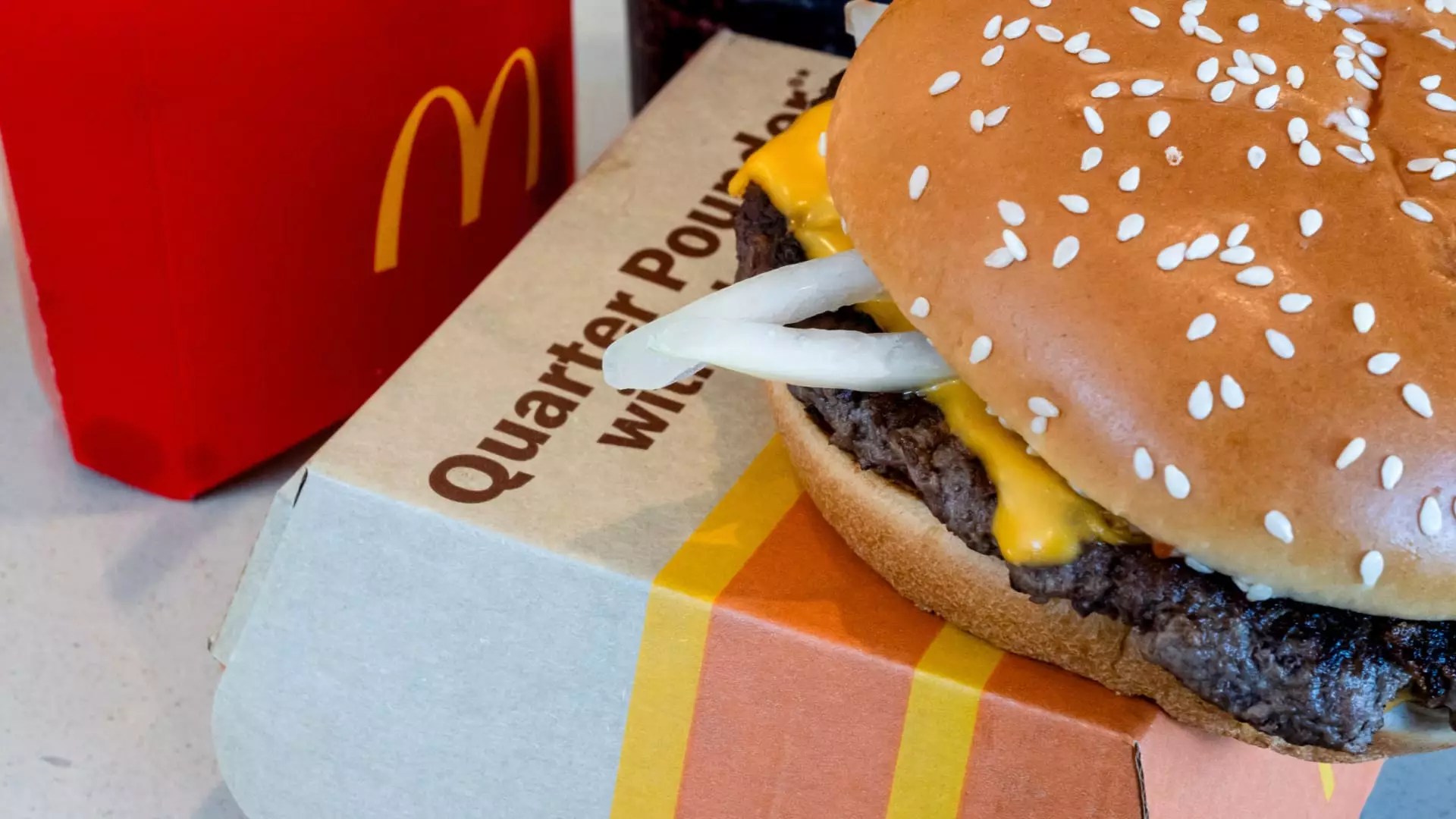Recently, a troubling E. coli outbreak traced back to McDonald’s renowned Quarter Pounder hamburgers has captured national attention, igniting concerns over food safety within the fast-food industry. According to the Centers for Disease Control and Prevention (CDC), 75 confirmed cases of E. coli have emerged across 13 states, with alarming reports indicating that 22 individuals required hospitalization and one fatality linked to an older adult in Colorado. The age range of reported cases spans from 13 to 88, adding an unsettling dimension to the outbreak as it affects a wide demographic.
This health scare highlights a critical issue: the potential for underreported infections. The CDC has mentioned that the actual number of infected individuals might be significantly higher than the reported figures, emphasizing that many people may recover from E. coli infections without seeking medical help, thus remaining uncounted. Furthermore, the timeframe required to confirm if an outbreak is involved with a particular illness often extends to three to four weeks. This delay complicates efforts to accurately assess the extent of the outbreak and manage it effectively.
The repercussions of this outbreak extend beyond immediate health concerns, manifesting in tangible financial impacts on McDonald’s. Following the CDC’s announcement, the company’s stock experienced a noticeable decline of 6% since the news broke, with shares falling by 2% upon the latest updates. This decline underscores the precarious balance fast-food chains must maintain between ensuring customer safety and protecting their stock market reputation.
As the outbreak unfolded, McDonald’s made a swift decision to pull Quarter Pounder patties and slivered onions from restaurant locations within the affected areas, which include states such as Colorado, Kansas, and Utah, as well as several others. The quick action demonstrates the company’s willingness to prioritize public health even at a financial cost, as around 20% of its U.S. stores have ceased selling this popular menu item temporarily.
In the ongoing investigation, health officials are scrutinizing the likely causes of the outbreak. The focus has shifted towards the slivered onions used in the Quarter Pounders, a staple ingredient that has been identified as a potential source of E. coli contamination. McDonald’s has disclosed that their supplier, Taylor Farms, is under investigation and has recently issued a recall on several raw onion products.
The ripple effect of this outbreak has prompted other fast-food chains like Burger King, KFC, Pizza Hut, and Taco Bell to examine their practices concerning onion usage. This collective response raises important questions about industry standards and the efficacy of current food safety protocols. It also highlights the interconnected nature of food supply chains; the actions of one major player like McDonald’s can lead to widespread changes across the fast-food landscape.
The E. coli outbreak poses a critical challenge for McDonald’s, especially as the company faces sluggish sales in the U.S. market. With consumers increasingly price-sensitive and seeking value options, this incident could further complicate efforts to stimulate traffic in restaurants. Analysts have projected minimal growth in U.S. same-store sales, only 0.5% for the third quarter, which points to a struggling market trying to rebound.
In times of crisis, maintaining customer trust becomes paramount. McDonald’s is striving to reassure its clientele that their menu items remain safe for consumption, emphasizing their commitment to addressing the outbreak seriously. Their forthcoming earnings report could provide additional insights into the company’s performance and the longer-term implications of this health scare on consumer behavior.
Though the immediate consequences of this E. coli outbreak are concerning, experts suggest that barring a more extensive crisis, the damage to McDonald’s brand reputation may be manageable. Historical context from past outbreaks indicates that consumers may be forgiving if a company can transparently respond and take corrective action effectively.
The unfolding situation at McDonald’s serves as a poignant reminder of the fragility of public trust in food safety and the necessity for ongoing vigilance in the industry. As health officials continue to investigate the sources and impacts of this outbreak, both consumers and restaurants alike are left navigating the complexities of food safety in a fast-paced, globalized market.


Leave a Reply